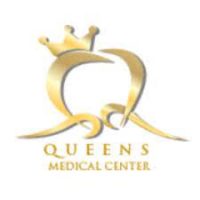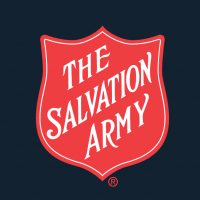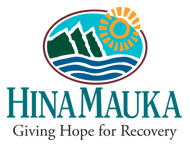Queens Medical Center - Behavioral Health
Drug Rehab Center in Honolulu, Hawaii
Queens Medical Center - Behavioral Health in Honolulu, Hawaii offers inpatient, outpatient, and day treatment services for mental health, substance abuse, and dual-diagnosis issues, specializing in addiction treatment, evidence-based therapies, trauma informed therapies, education sessions, and aftercare planning.
About Queens Medical Center - Behavioral Health in Hawaii
Queens Medical Center - Behavioral Health in Honolulu, Hawaii is a part of Queens Medical Center, a major healthcare provider in the state. It is a comprehensive behavioral health and addiction treatment center that offers inpatient, outpatient, and day treatment services for individuals and families experiencing mental health, substance abuse, and dual-diagnosis issues. They specialize in treating addictions to alcohol, drugs and other substances and provide a full continuum of care including assessments, detox, stabilization, treatment planning, individual, and group therapies.
The staff at Queens Medical Center - Behavioral Health are trained to provide evidence-based treatments for addiction, such as Cognitive Behavior Therapy, Dialectical Behavior Therapy, and 12-step approaches. They also offer evidence based therapies for dual-diagnosis issues such as Motivational Interviewing and multidimensional family therapy. In addition, the center offers trauma informed therapies to help individuals heal from past traumas and build resiliency. They also offer education sessions and aftercare planning for their clients.
The hospital has been accredited by the Joint Commission and is fully licensed by the Hawaii State Department of Health. In addition, the Behavioral Health Center at Queens Medical Center is one of the few accredited healthcare providers in the country to receive a Five Star Award from The Joint Commission, recognizing the excellence of their care. They also partner with organizations such as the National Institutes of Health to conduct research and identify innovative treatments for substance abuse and addiction.
Genders
Ages
Modality
Additional
Conditions and Issues Treated
Levels of Care Offered
This center offers a variety of custom treatment tailored to individual recovery. Currently available are Dual-Diagnosis, Inpatient, Outpatient, with additional therapies available as listed below.
Inpatient treatment for alcoholism or drug addiction is an option that provides the addict with a supportive environment in which they can stop using. This type of treatment is appropriate for addicts that are most in need of intensive care and supervision. This includes those who were unable to quit on their own, those who need more structure than they can get in outpatient treatment.
“Outpatient treatment is ideal for those who have a lower intensity addiction. It’s also suitable for those with a supportive environment and those on a tight budget.
Outpatient treatment can be considered the lowest intensity level of addiction treatment. It is ideal for early phase addiction or lower intensity addictions. It may involve weekly sessions instead of daily. Peer group support, 12-step programs, and individual counseling may still be used and anti-addiction medication.
Therapies & Programs
No single treatment works for all addicts; therefore, the goal of treatment and therapy should be to find what works best for each individual. Some people requiring addiction treatment may only need a few weeks of inpatient care. Others will require long-term residential care. Tolerance and withdrawal levels vary from person to person and thus affect the intensity of the treatment needed.
If an individualized approach to treatment and therapy is not offered, addicts may fail to reap benefits from their efforts. Professionals must customize plans according to their patient’s needs, limitations, and strengths. The goal of all forms of addiction treatment should be for addicts to find healthy ways to cope with their addiction and its underlying causes.
Couples therapy for drug addiction is a unique form of therapy that allows family members to work through the emotional issues of their loved one’s addiction together. Family members can support each other while learning how to cope with the addiction and encourage healthy changes.
Accordingly, couples therapy for drug addiction is designed for an addict and their significant other or spouse. The two will work with a therapist to learn how the addiction affects themselves and the relationship and how to break the negative patterns of behavior that may have developed.
Drug addiction can destroy a person’s life, as well as their family and friends. The loss of one’s ability to choose how to live and behave often leads the addict into depression, anger, guilt, and many emotional problems.
The therapies usually include siblings, children, and parents who are involved in their daily lives. These sessions are vital because they address past issues that may have hampered an addict’s or alcoholic’s recovery and provide support at a crucial time!
One of the most critical aspects of family therapy is helping addicts’ loved ones see their situation in a new light. It’s also one of the most challenging things a family can do when a loved one struggles with addiction or alcoholism.
Group therapy is held in a safe, controlled setting where patients can feel comfortable sharing their struggles and gaining perspective through shared conversations. It takes place in a group rather than one on one to prevent feelings of isolation or being unique in their situation while creating an environment for addicts at Queens Medical Center - Behavioral Health to develop fellowship, accountability, and support. Group therapy is an important tool in recovery that prevents cravings that prompt a return to active addiction.
This type of therapy involves the use of a variety of therapeutic techniques to help addicts recover from past traumas that might have triggered their substance abuse. During these sessions, therapists will work with the addict to address painful memories and learn how to cope effectively with stressors as they arise.
During these types of sessions, therapists will typically focus on three main goals:
- Identifying and expressing painful emotions associated with past traumas.
- Reducing the effects of stress on an addict’s life by developing more effective coping mechanisms.
- Developing healthy ways of thinking about stressful situations that can help addicts avoid substance abuse issues in the future.
This type of therapy is typically used in conjunction with other types of addiction treatment services. By identifying and dealing with the root cause of addiction, most addicts can overcome their cravings and prevent relapse once they leave rehab.
Many different types of addiction treatment services exist to help addicts safely get sober, but it’s important for recovering individuals to find a therapist or support group that will help them address the root cause of their addiction.
Dialectical Behavior Therapy is a form of Cognitive Behavioral Therapy that helps patients understand the relationship between their thoughts, feelings, and behaviors. It is beneficial for those whose addictions and behaviors stem from severe mental health issues. It aims to help the patient achieve their goals and identify how they can enhance their lives.
Cognitive-behavioral therapy is a talking-based method that helps people struggling with addiction replace destructive behaviors with healthier ones. CBT also helps them identify the underlying thoughts and beliefs that cause these behaviors in the first place and ways to control those thoughts and feelings. It can be administered as a holistic therapy or as part of combination therapy and—as opposed to turning to drugs and alcohol—helps addicts learn how to respond to negative thoughts instead.
Patient Experience
Experiential Therapy at Queens Medical Center - Behavioral Health
Experiential Therapy is used by drug treatment facilities to treat substance abuse. This treatment is clinically proven to help addicts in detoxification by allowing them to release emotions in a safe environment. The treatment process involves addicts painting their feelings and releasing them on a canvas.
One of the most popular forms of experiential therapy is known as LPE – Love, Peace, and Equilibrium. Amy Gumowitz developed this treatment in 1992. By implementing her philosophy of “reality therapy” into the treatment, Gumowitz’s results were outstanding. Once her success was validated by those she had been helping, she decided to open her treatment center. Although Gumowitz passed away in 2007, her contribution to the addiction recovery remains effective, and better yet, it is 100% self-sufficient.
Payment Options Accepted
For specific insurance or payment methods please contact us.
Is your insurance accepted?
Ask an expert, call (888) 674-0062
Additional Details
Specifics, location, and helpful extra information.
Honolulu, Hawaii 96813 Phone Number(808) 691-7066 Meta DetailsUpdated November 25, 2023
Staff Verified
Queens Medical Center - Behavioral Health Patient Reviews
There are no reviews yet. Be the first one to write one.
Honolulu, Hawaii Addiction Information
Hawaii has one of the highest rates of drug abuse in the nation. Methamphetamines and marijuana are the most common drugs involved in drug-related crimes in Hawaii. The state loses $500 million every year due to methamphetamine abuse, according to the Hawaii Meth Project. More than 1 million prescriptions for prescription drugs are given out every year.
In 2016, there were 809 drug-related deaths in Honolulu. Heroin was involved in more than half of all overdose deaths in 2016. 6.1 percent of people in Honolulu abused drugs in the past month. In 2015, there were 2,538 admissions to treatment centers for drug abuse in Honolulu. There are many drug treatment facilities in Honolulu, HI that can help you or your loved one get sober.
Treatment in Nearby Cities
- Kailua Kona, HI (166.7 mi.)
- Waikoloa, HI (163.8 mi.)
- Kapolei, HI (13.2 mi.)
- Kahuku, HI (26.5 mi.)
- Kailua, HI (9.8 mi.)
Centers near Queens Medical Center - Behavioral Health
The facility name, logo and brand are the property and registered trademarks of Queens Medical Center - Behavioral Health, and are being used for identification and informational purposes only. Use of these names, logos and brands shall not imply endorsement. RehabNow.org is not affiliated with or sponsored by Queens Medical Center - Behavioral Health.







